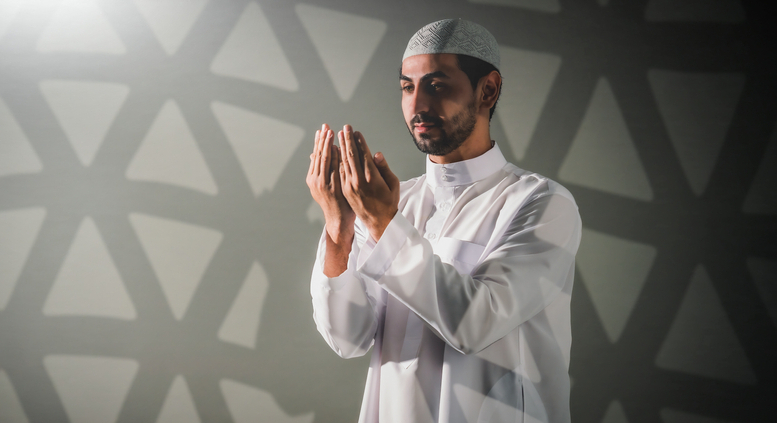How Should I Formulate Intentions for Worship?
Shafi'i Fiqh
Answered by Shaykh Irshaad Sedick
Question
Answer
In the Name of Allah, the Most Merciful and Compassionate.
May Allah alleviate our difficulties and guide us to what pleases Him. Amin.
The intention is integral to formal worship. Ibn al-Mundhir states in his work collecting the consensus of the Muslim scholars (Ijma‘), “The scholars have consensus (Ijma‘) that Prayer is not accepted without an intention.” [Ibn al-Mundhir, al-Ijma‘]
However, formulation and execution of one’s intentions are acts of the heart, and merely being acutely conscious of the nature and basic details of the worship you undertake suffices as an intention, and Allah knows best.
Giving verbal expression to your intentions is recommended, but this is a means of assisting your heart to focus. Therefore, expressing your intention in your mother tongue would be more effective and better aligned with the recommendation to express your intentions verbally, and Allah knows best.
Internal or Verbal Intentions
It must be formulated internally, i.e., in the heart. Realizing and being conscious of one’s purpose is what is required. Even if one articulated (with the tongue) an intention contrary to what is in the heart, this would not be a problem. In contrast, if one articulated an intention while the heart remained inattentive, it would be invalid. [Tarmasi, Hashiyat al-Tarmasi]
Imam al-Khatib al-Shirbini (Allah have mercy on him) stated in al-Iqna‘, “And the intention (niyya) is within the heart according to the consensus of the Jurists (ijma‘). It does not suffice to say the intention upon the tongue while being heedless within the heart according to the Ijma‘ of the Muslims, and this pertains to the rest of the issues [of prayer as well].
If one were to say the intention with the tongue and it contradicts the intention of the heart, it does not harm [the validity], such as intending the Dawn Prayer while saying upon one’s tongue that one intends the Dhuhr Prayer. It is recommended (mandub) to say the intention with the scheduled prayer right before the opening Takbir for the Prayer (…).” [Bujayrimi, Hasiyat al-Bujayrimi ‘ala al-Khatib]
Specifics of the Intention
In formulating one’s intention, one must specify the following:
- that one is going to pray;
- specify which prayer one is going to perform;
- and that it is an obligatory prayer. [Jarhazi Hasiyat al-Jarhazi ‘ala al-Minhaj al-Qawim; Haythami, Tuhfat al-Muhtaj]
In clarifying the ruling of mentioning the intention upon the tongue, the relied upon view of our School is that it is only recommended– not obligatory – to articulate the intention. Imam Nawawi (Allah have mercy on him) says in his al-Minhaj, “(…) and the Niyya is within the heart, and pronouncing it before the saying of the Takbir is recommended (mandub).”
Verbal Expression is Recommended, Not Obligatory.
Imam Nawawi (Allah have mercy on him) states in his Majmu‘, “If one makes the intention within the heart and does not pronounce it, such is permissible according to the School; the majority stated this.” (…he then mentions a weak opinion narrated by Abu ‘Abdullah al-Zubayri that stated it was obligatory to do both…) to which Imam Nawawi (Allah have mercy on him) said, “Our companions (from the Shafi‘is) say this (opinion) is an error.”
The reason that the Shafi‘is consider articulating the intention as recommended is two-fold:
- Some Jurists considered it obligatory (such as the author al-Bayan, and al-Yamani). Although this is a very weak view, avoiding the area of difference is better.
- As assistance to the heart to formulate an intention free from neurotic misgivings. [Ramli, Nihayat al-Muhtaj]
Note: Adapted from an article by Shafiifiqh.com
I pray this is of benefit and that Allah guides us all.
[Shaykh] Irshaad Sedick
Checked and Approved by Shaykh Faraz Rabbani
Shaykh Irshaad Sedick was raised in South Africa in a traditional Muslim family. He graduated from Dar al-Ulum al-Arabiyyah al-Islamiyyah in Strand, Western Cape, under the guidance of the late world-renowned scholar Shaykh Taha Karaan.
Shaykh Irshaad received Ijaza from many luminaries of the Islamic world, including Shaykh Taha Karaan, Mawlana Yusuf Karaan, and Mawlana Abdul Hafeez Makki, among others.
He is the author of the text “The Musnad of Ahmad ibn Hanbal: A Hujjah or not?” He has served as the Director of the Discover Islam Centre and Al Jeem Foundation. For the last five years till present, he has served as the Khatib of Masjid Ar-Rashideen, Mowbray, Cape Town.
Shaykh Irshaad has thirteen years of teaching experience at some of the leading Islamic institutes in Cape Town). He is currently building an Islamic online learning and media platform called ‘Isnad Academy’ and has completed his Master’s degree in the study of Islam at the University of Johannesburg. He has a keen interest in healthy living and fitness.
